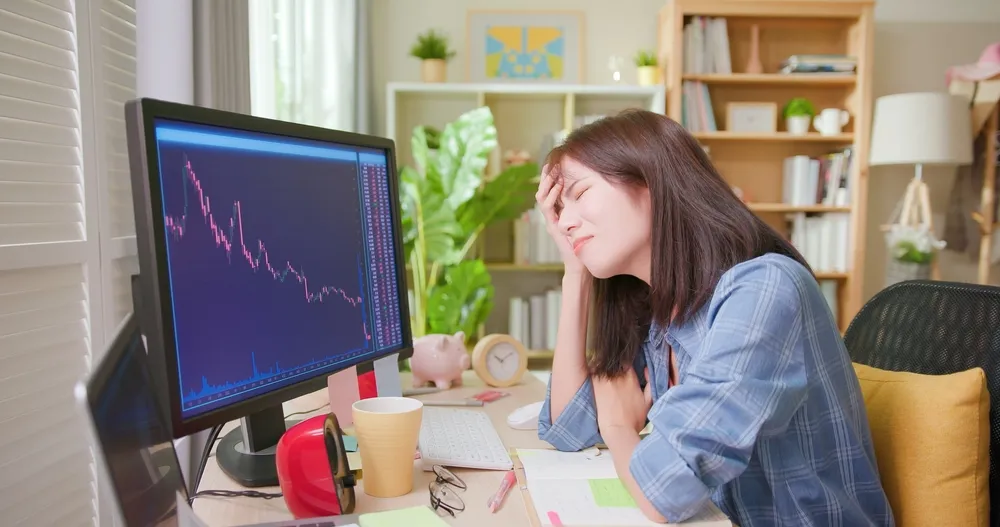Personal Finance News
How not to get emotional about your investments

5 min read | Updated on November 16, 2024, 23:17 IST
SUMMARY
Investing is a money decision, but like all other money decisions, it can also be emotional. Even the outcomes you seek from your investment decisions are somewhat emotional—be it buying a house, funding your child’s higher education, or saving for a comfortable retirement. These choices evoke emotional responses—joy and happiness if achieved and emotional distress if not.

Investing money in any asset has emotional aspect to it, too much emotions could ruin your goals
Have you ever spent a large sum of money simply to feel good or, perhaps, to stop feeling bad? Have you felt anger or shame when your lifestyle is compared to your financially more successful sibling’s lifestyle? Are you planning a celebratory party for that promotion and pay hike? Do you get anxious about equity market corrections and stopping losses from getting hit?
Although money is inanimate, it impacts how we feel and how we behave. Undeniably, there is a lot of emotion tied to how we spend and use money. Greed and fear are emotions, and various surveys across the globe have shown how these emotions are inextricably intertwined with our decisions about money.
Investing is a money decision, a choice we are making in terms of how we want to grow our wealth, and like all other money decisions it can be emotional. If you think about it, even the outcomes you seek from your investment decisions are somewhat emotional, aren’t they. Buying a house, funding your child’s higher education, starting your venture and a comfortable retirement lifestyle. These are choices that evoke emotional responses, joy and happiness if achieved and anxiety and depression if not.
However, when it comes to investing, emotions need to be set aside. For some, emotions may even need to be locked up.
Investing and emotions
Equity traders have devised systems that prevent them from being influenced by emotion while trading. The basic stop-loss is a way to ensure that you do not let your emotions get the better of your trading strategy. For long-term investors, facing a potential market correction (As of 4th November, the BSE Sensex has lost 8.2% in roughly the last 40 days) there are no defined stop losses. Seeing the value of your hard-earned savings falling fast can be unnerving for the most resilient of us.
Let’s go back in time a little, to March 2020. Our equity indices were falling too fast thanks to the pandemic scare. In a matter of 45 days from mid-February 2020 to the end of March 2020, our benchmark indices were down roughly 35%. It was quick and brutal, with stock prices of even good-quality companies falling 50%-60%. It was the ultimate test of your emotions. When such a sharp correction happens in highly uncertain times, you just don’t know what’s next. This leads to obvious anxiety and the daily, deepening red in the portfolio can exaggerate that emotion. As a result, you may be driven to act and the most apparent action is to get out. That’s what our right brain tells us, get out while you can; the world is coming to an end.
Had you let emotion take over and withdrawn your equity investments, you may have missed out on the strong rally we have seen since then. The benchmark indices are up 95% in value since the beginning of April 2020. If you had just pulled out your money from the markets, it’s unlikely that you went back in a hurry.
This correction in 2020 did not last long, the one in the year 2007-08 did last for a few months and at its bottom, the benchmark indices were 50% off their highs. That’s when emotions truly get tested.
For decades equity markets have moved up and come down. It’s called volatility. In the time frame of decades, a 2-3 year correction is still short-lived. Take the last 100 years, we have seen World Wars, civil wars, natural disasters, pandemics, financial crises and a lot of other critical changes in the world. Equity markets have not gone to zero. On the contrary, markets follow the trend of economic growth.
But this is just equity, what about other assets, real estate, deposits, and commodities? The story is no different. Over the years, there has been a tremendous change in all financial and physical assets, securities and the fundamentals that impact these assets.
Calculated risk, not emotional choices would have helped you create wealth in the last 100 years.
How to overcome emotion?
We are emotional beings and there is no switch to turn our emotions off when it comes to money. Nevertheless, you can attempt to transform behaviour in a way that you are not reacting to these emotions immediately.
Step one is to acknowledge the emotion. Fear of losing money in a correction or fear of being left out in a rally are both harmful emotions if you act on them. Question your emotion, why are you fearful? If you have made investments solely based on tips and not according to your financial goals there may be reason to be fearful. Awareness of the emotion and the reason behind it can help you correct the error.
Or are you fearful because you think the market will not stop correcting? This stems from a lack of knowledge. Markets correct, normalise and recover. That’s the cycle that has played out repeatedly. If the economy is expected to grow, equity markets will too.
Equip yourself with the right awareness and knowledge and then approach your reaction or response to the emotion. A market correction every few years is no reason for you to panic or shift gears if your own financial goals are in place and your investments are aligned accordingly.
If you still feel overwhelmed by a sharp or long-drawn-out price correction, before reacting, your final step is to seek the help of a professional—a financial planner or advisor, who has the experience to navigate those flighty emotions and help you make the right financial choices.
When it comes to money decisions, emotions are not your yardstick to action; box that monkey and act with reason.
By signing up you agree to Upstox’s Terms & Conditions
About The Author
Next Story

